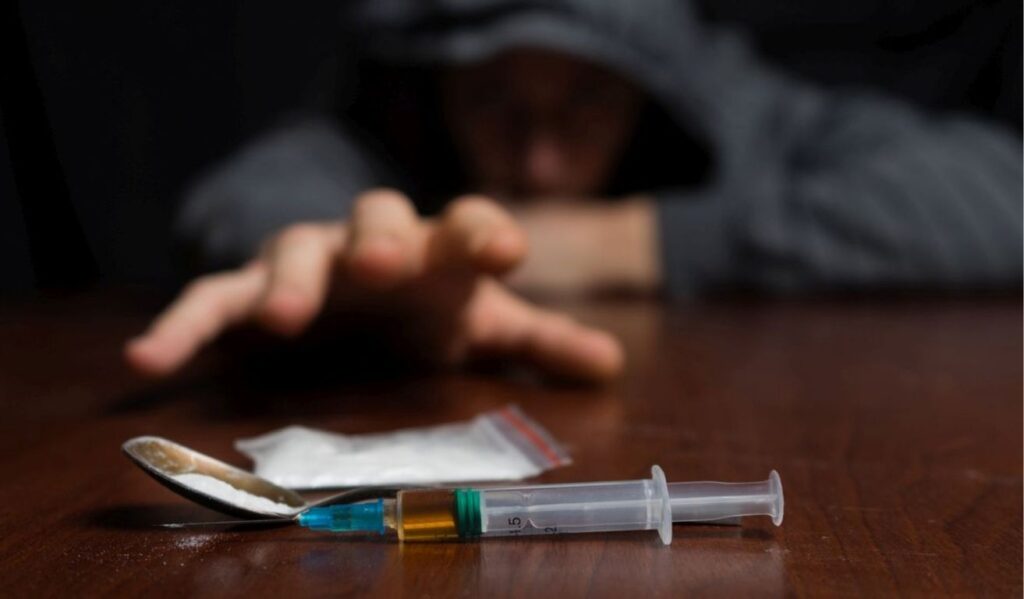Agartala, Tripura – The state of Tripura is grappling with a severe public health crisis as an alarming number of students have succumbed to HIV, with 47 deaths reported and 828 students testing positive. This outbreak has not only highlighted the fragility of public health systems but also brought to light the underlying issues of drug abuse among the youth in the region.
HIV Outbreak in Tripura: A Tragic Toll Among Students
The Unfolding Crisis
The Tripura State AIDS Control Society (TSACS) reported that as of May 2024, 8,729 people have been registered at Antiretroviral Therapy (ART) centers across the state, with 5,674 still alive. The majority of these cases are male, with 4,570 men, 1,103 women, and one transgender individual currently receiving treatment. Among the registered cases, students from 220 schools and 24 colleges and universities have been identified as HIV-positive, largely due to intravenous drug use .
The Root Cause: Drug Abuse
The HIV outbreak among students in Tripura has been predominantly attributed to intravenous drug use. According to the TSACS, many of the affected students belong to affluent families, which has led to easier access to drugs. By the time families realized their children had fallen prey to addiction, it was often too late to prevent the spread of the virus.
In a recent media workshop organized by the Tripura Journalist Union, Web Media Forum, and TSACS, officials shared a grim statistical presentation on the state’s HIV scenario. The data was collected from 164 health facilities across the state, covering almost all blocks and subdivisions, to provide a comprehensive picture of the crisis.

Government and Community Response
The state government, along with various non-governmental organizations (NGOs) and socio-cultural organizations, is actively working to curb the spread of HIV. Awareness campaigns and educational programs are being conducted to inform students about the dangers of drug abuse and the importance of safe practices. However, the spike in new cases, with five to seven new HIV cases being detected daily, indicates that these efforts need to be significantly intensified.
The TSACS has been at the forefront of these efforts, organizing workshops and training programs to educate healthcare providers and the general public. The society has also been working on improving access to ART centers and ensuring that those affected receive the necessary medical care and support.
The Human Toll
The impact of this outbreak on the affected families is profound. Many students who tested positive for HIV have migrated out of Tripura for higher studies in reputed institutions across the country, adding another layer of complexity to managing and monitoring the outbreak.. The stigma associated with HIV/AIDS further exacerbates the challenges faced by these students and their families.
One of the major hurdles in combating this crisis is the lack of awareness and understanding about HIV/AIDS among the general population. Misconceptions and stigma associated with the disease often lead to delayed diagnosis and treatment, worsening the prognosis for those affected.
Moving Forward: A Call for Action
The HIV outbreak in Tripura is a stark reminder of the vulnerabilities within public health systems and the urgent need for comprehensive strategies to address drug abuse and its associated risks. The state government must enhance its efforts in providing robust healthcare infrastructure, increasing awareness, and fostering community engagement to effectively tackle this crisis.
Strengthening educational programs in schools and colleges, improving access to healthcare facilities, and promoting safe practices among the youth are crucial steps in preventing the spread of HIV. Additionally, providing support and counseling for affected families can help mitigate the psychological impact of the disease and reduce stigma.
Conclusion
The tragic deaths of 47 students and the infection of 828 others with HIV in Tripura underscore the pressing need for a coordinated response to public health crises. It is imperative for the state government, healthcare providers, and the community to work together to combat this outbreak and ensure a healthier future for the youth of Tripura.
In light of these developments, the focus must be on preventive measures, early diagnosis, and effective treatment to control the spread of HIV. By addressing the root causes of the outbreak and providing comprehensive care and support, Tripura can overcome this crisis and protect its young population from further harm.
Also read: Jaw Dropping Transformation of Kartik Aryan: From 36% to 7% Body Fat
